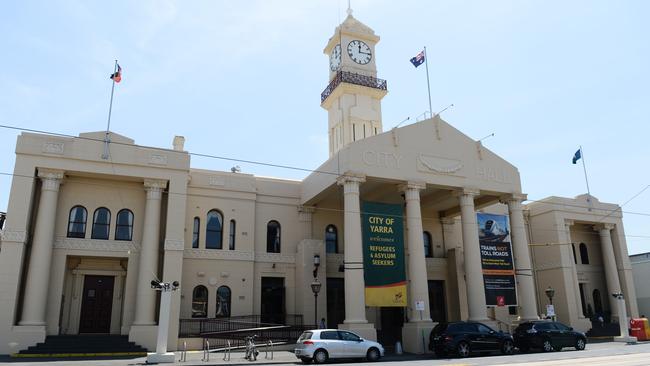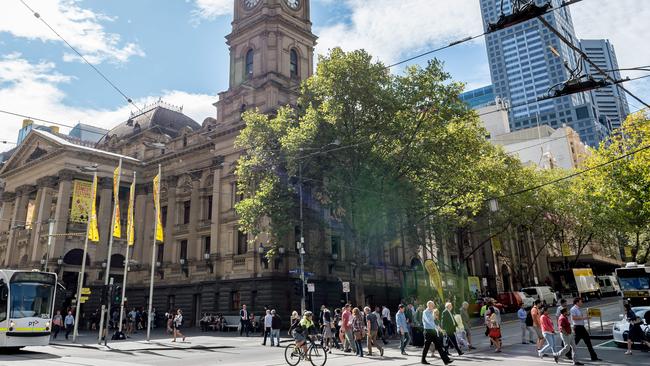Outrage over ‘bloated’ staff levels and high pay at Melbourne inner-city councils
Melbourne’s inner-city councils have drawn fire for becoming “bloated” with too many high-paid staff, forcing ratepayers to carry the burden of massive wage bills.

Victoria
Don't miss out on the headlines from Victoria. Followed categories will be added to My News.
Inner-city councils such as Melbourne, Yarra and Port Phillip were “bloated’’ with too many staff and paid too-high wages, an analysis by ratepayers’ lobby group Council Watch has found.
The survey of all 79 Victorian councils revealed that Yarra had the most staff in relation to population for any metropolitan authority. The Richmond-based council has 9.77 staff for every 1000 residents in the municipality.
The City of Melbourne has 9.52 staff for every 1000 residents, well above the staff ratios of outer suburban councils, such as Melton which has just 3.93 staff per 1000 population.
And Sally Capp’s 1522 employees at Town Hall enjoyed an average annual salary of $135,734, the highest pay packet in the state. Next highest was City of Port Phillip with an average wage of $129,174.
Council Watch spokesman Dean Hurlston said ratepayers were carrying the burden of high council wage bills.

“The City of Yarra is bloated and needs essentially to stop hiring more staff.
“Every time they hire more staff all they are doing is taking away the provision of real services. A person sitting behind a desk isn’t the provision of maternal health or a health inspector or someone cleaning the streets.’’
Mr Hurlston said most service provision was contracted out so those numbers weren’t included in the council staff totals.
Inner councils also didn’t have a large area to manage, he said, unlike councils on the city’s outer ring such as Wyndham and Casey.
“They (outer-suburban councils) have massive roads and massive geography and a huge area to cover, but the inner city with all the staff still can’t make the place shine and look amazing,’’ he said.
Municipal Association Victoria president David Clark said councils across the state provided a diversity of services which required professional leadership.
“This variety requires a well-skilled workforce, ensuring our councils provide their ratepayers value for money.’’
City of Melbourne chief executive Alison Leighton said council staff delivered on what mattered most.
“Better facilities and services, making our city cleaner and safer, and more events and festivals to attract more people into the city and boost business.
“We know the economic struggles continuing to face many Melburnians, which is why we’re easing the burden on households by absorbing a range of costs.”

A Yarra spokeswoman said the council prided itself on providing high-quality services including libraries and leisure centres.
“The majority of these services are provided in-house, rather than being outsourced, resulting in the need to employ more staff and higher staffing costs than some other councils.
“Council has made a decision to not increase our overall staffing costs in a considered effort to address financial sustainability.
“Council’s 2023/24 projected figure for full-time-equivalent staff includes casual and temporary staff, which is not the practice of all councils.’’
Staff ratios were much higher in country areas, leading to calls by Council Watch to merge municipalities with populations of fewer than 20,000 people.
“You would arguably say that those councils need to be merged with other ones to get some size and scale and drive back-office efficiencies.’’
Cr Clark dismissed talk of amalgamations.
“Rural councils are not entertaining the idea of mergers. As part of the local government sector’s desire for best practice, many councils have resource-shared, particularly during disaster recovery periods like we saw in last year’s flooding.
“Smaller rural communities and councils will give this thought bubble from within the tram tracks the attention it deserves.”
More Coverage
Originally published as Outrage over ‘bloated’ staff levels and high pay at Melbourne inner-city councils





